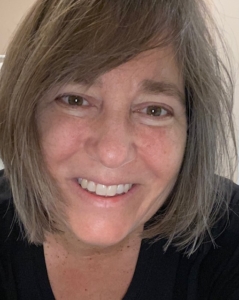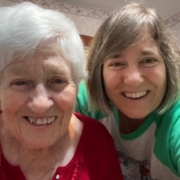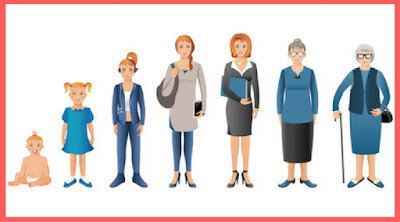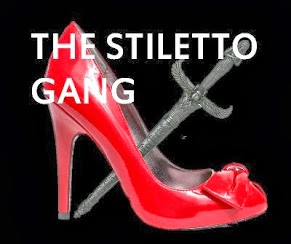Thoughts on an aging mother
By Barbara J Eikmeier
My mother, at age 91, helped me up off the floor. It was one of those moments that will stay with me for a long time.
Dementia has left her passive. Arthritis has left her bent over at the waist and often in pain. She uses a walker, moves very slowly, and needs help with most aspects of her care.
Thanks to my dad’s careful financial planning and the round-the-clock caregivers we’ve hired, she still lives in the farmhouse in California where I was raised. I visit her from Kansas for a week or so every month or two. She has become quiet, rarely voicing descent in a conversation, often confused about who I am.
But I still know her.
So, I tell her about my travels, and my children. I show her my embroidery projects and tell her about the book I’m reading.
She thinks I’m her sister. Or one of my sisters.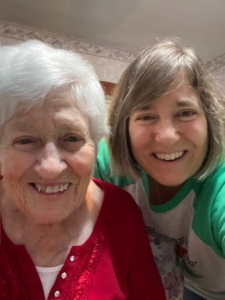
She tells me “They don’t let me do anything.” Mostly I think she’s bored. After all, she had a busy life. She raised nine children, was active in her church, helped on the dairy farm, and took care of the 20 heifers we raised every year. She did all the bookkeeping and read the daily paper and listened to the evening news. She mended clothing, baked cookies, and served dinner for a crowd every night. Now she paints with water and watches cartoons.
She doesn’t know me, but she remembers how to spoon leftovers into Tupperware, so I set her up at her place at the kitchen table and leave pot roast and potatoes, lettuce and broccoli next to an assortment of containers. She can perform this task perfectly, without help.
She thinks I’m her sister, but she can use a seam ripper to fix my sewing mistake. So, I gave her a seam ripper and showed her the stitching that needed to come out. She finished in no-time, after all, she was an expert seamstress earlier in her life.
I showed her the grapefruit I picked from her tree. She sniffed it and said, “It’s too old.” I cut it in half and showed her again. She poked at the dry, grainy segments and said, “Throw it away.”
When I’m with her I sometimes need to escort her to the bathroom. She washed her hands and said, “I think my shoe strap has come undone.” I squatted, my bottom nearly brushing the floor as I checked the Velcro on her navy Mary Janes. “It’s ok Mom, but now I have to get up!” I do squats at the gym, but I don’t go that low. My thighs were screaming, but the bathroom is so tiny, and I was trapped between my mother and her walker. If I leaned forward, I risked toppling into her. That’s when my mother, permanently bent over at the waist, her arms dangling in front of her, reached out, just enough to put her hands around my torso, tuck her palms into my armpits and lift. I popped right up. She smiled and said with a nod, “We have to work together on these kinds of things.”
It’s been a long time since my mother has said my name, but that day, she put her arms around me and for a split second she was the nurturer again.
Barbara J. Eikmeier is a quilter, writer, student of quilt history, and lover of small-town America. Raised on a dairy farm in California, she enjoys placing her characters in rural communities.
